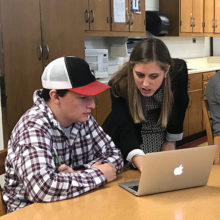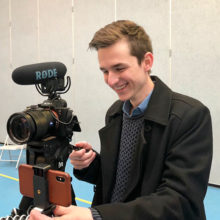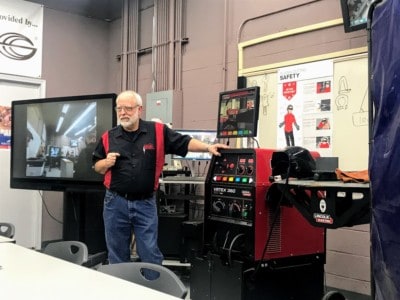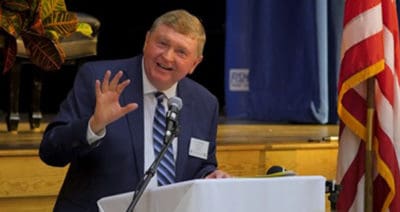Almost two months after community colleges moved the vast majority of their classes online, some community college students were allowed back on campus last week.
“I’m just so happy to be back,” said Nash Community College CDL instructor Gary Bunn, who is helping his students complete the training hours required to become certified truck drivers.
“The last couple of months for me have been disappointing because I love what I do,” Bunn said, “and I love the facility I work with, and even more than that … I love giving people the opportunity for a new lifestyle.”
Seven students have already completed their driving hours the first week back, said Wendy Marlowe, Nash Community College’s vice president of corporate and economic development.
Following Gov. Roy Cooper’s announcement of Phase I of his reopening plan starting May 8, the North Carolina Community College System (NCCCS) gave colleges the green light to resume face-to-face instruction in certain courses, provided the colleges utilize appropriate health protections and social distancing protocols. Those courses are in the following disciplines: health care, transportation, facility maintenance, infrastructure, and manufacturing and customized training. See the NCCCS memo to colleges below.
On Wednesday, May 13, I visited Nash Community College to see how one college is handling the return to campus amidst the pandemic. In order to visit, I was asked to follow the same guidelines students are following to return to campus. Those include monitoring your temperature, having your temperature taken at the start of class, and certifying you have not experienced COVID-19 symptoms.
Students and instructors were happy to be back in class. Over the past seven weeks, students in these courses have been doing as much as they can online, but there’s only so much they can do virtually before they need to actually practice the hands-on skills they are learning.
“Since we started having to be all online, we’ve done all of the book aspects of it – the stuff we have to know – and now we’re having an opportunity to practice it,” said Julianna Blankenship, a physical therapist assistant (PTA) student. “For me, I’ve been practicing on my cousin and my boyfriend, and it’s good to be able to practice on a person, but it’s bad at the same time because I don’t know if I’m doing it exactly right. So I’m happy to actually be able to come here in person.”
As they practiced measuring each other’s ankle dorsiflexion range, PTA student Lee Spradlin said the past few months have been stressful. “I know for me, studying material is one thing but actually getting in here and being able to put hands on somebody and learn the physical aspects of the job is such a huge portion of learning the material.”
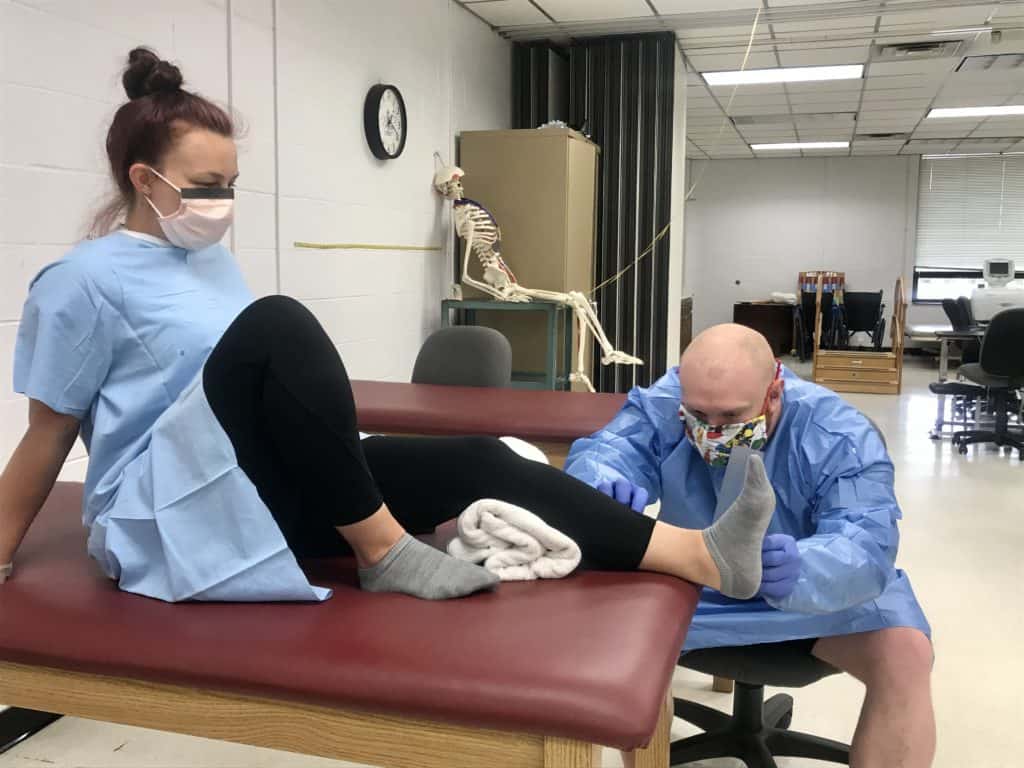
All the PTA students credited their instructor, Jocelyn Hardee, for helping them through the past few months.
“I didn’t think that doing it online would’ve even been possible, but they’re awesome. Ms. Hardee’s been awesome,” PTA student Allyson Whaley said. “We had all the materials we needed to do this from home, and we’ve all done great.”
“Ms. Hardee’s probably the best teacher I’ve ever had,” PTA student Autumn Uber said, while another student, Jocelyn Fish, added, “She was only one phone call away. She was there anytime we needed her.”
As students practiced the various skills, Hardee walked between them and gave feedback, correcting their positioning and demonstrating the skills herself. And while physical therapy inherently involves touching other people, the students and instructors wore hospital gowns, masks, and gloves.
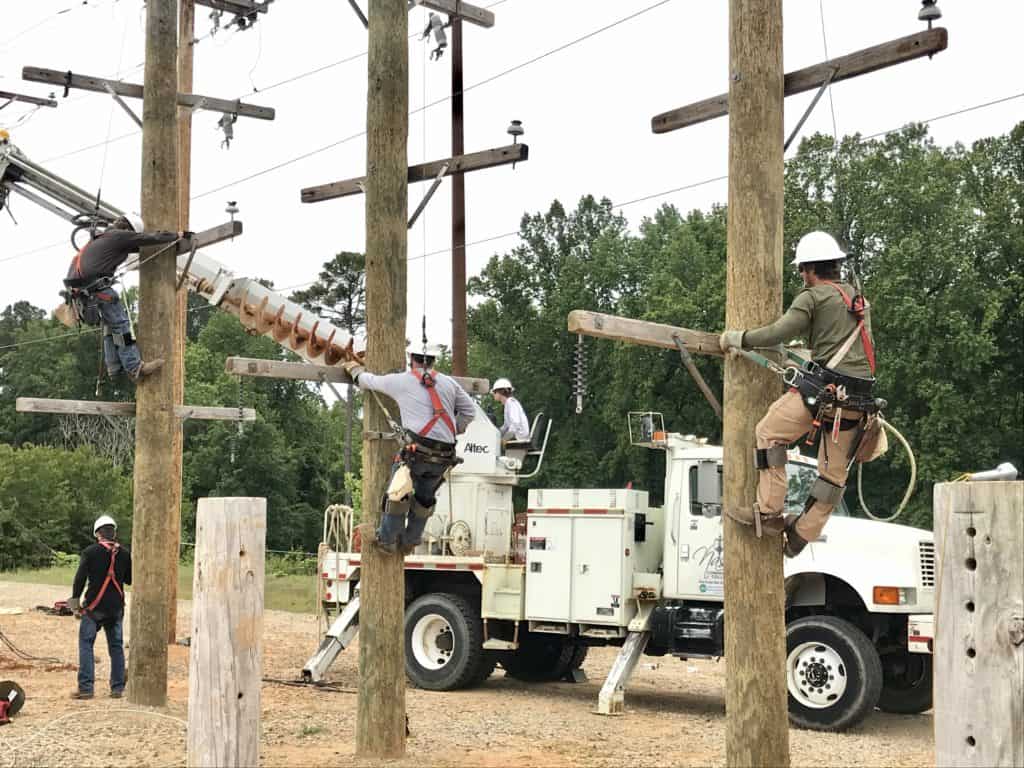
Other classes have an easier time maintaining social distance. Electrical line technology training is particularly well suited to in-person instruction during COVID-19 as the training field is outside and the poles are already six feet apart. Machining classes also naturally follow social distancing protocols because the machines students work on are already placed several feet apart due to safety concerns.
To abide by restrictions on gatherings of more than 10 people, instructors split classes with more than 10 students into two or more groups. Physical therapist assistant students were split into a morning and an afternoon group, whereas electrical line technology instructors decided to bring half their students back the week of May 11 and the second half the week of May 18. Students in the CDL truck driving course were coming in one by one to complete their driving hours and practice on the truck driving simulator.
One consequence of splitting the classes is that instructors are spending more time teaching. “Normally what we could do in four hours now takes us up to 12 because we have to do different sections based on the number of students that we have,” said Andrea Milks, director of the physical therapist assistant program.
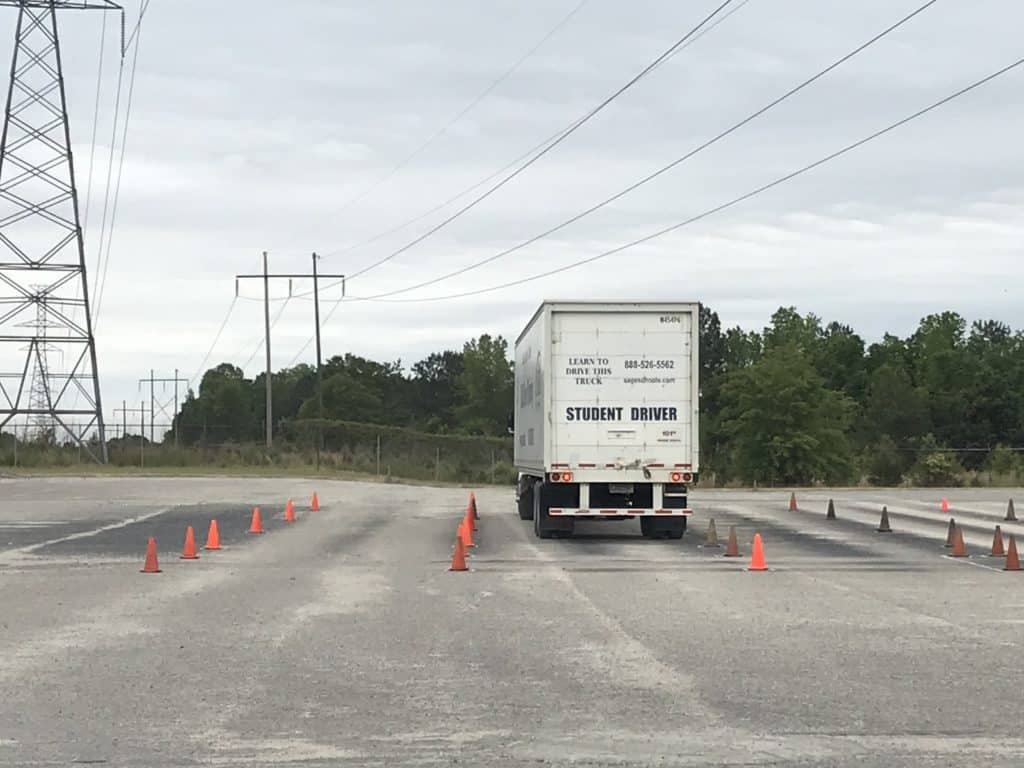
The transition online due to COVID-19 forced many instructors to learn how to teach online in an extremely short amount of time. However, all of the instructors I talked to said it was easier than expected, thanks to colleagues and students helping out.
“We’ve all had to learn to teach online, which has been a challenge, but we’ve made it,” said Bebe Wall, a recruiter in the electric lineman program. “These (students) have been great … and they all showed up this week, so that’s really good.”
The transition online has shown instructors that virtual instruction is possible and can be done well in many areas they previously had never tried.
“I do an industrial safety class and blueprint reading class that we’ve always talked about, ‘I wonder how well this would work online,’ and we were able to get it to work online very well,” said George Shook, a machining instructor. “Maybe not a full online class, but a blended class … I think instructors would be more open to that because we have proved that it does work.”
Milks added that the past few months have taught them how to truly blend online and lab time in the physical therapy assistant program.
“We’ve been trying to strategize how can we help students take responsibility for their own learning, versus the instructor is up here, they’re sitting there passively just listening to us lecture and then they perform some labs,” Milks said. “As a program, we’ve been trying to come up with ways to be able to integrate that. COVID-19 forced us to do it in a very quick turnaround.”
For now, the only students coming back to campus are those needing to finish up lab hours and in-person training in specific courses. As the summer session begins, colleges will continue monitoring the governor’s phased reopening plan and will work with the community college system office to determine what classes will look like moving forward.

